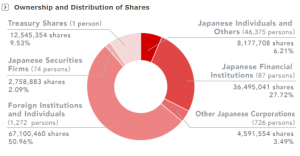Ishiba, one of the candidates for the liberal democratic party head, shared his idea that he was going to use his avatar character in a game “ Animal Crossing New Horizons” as part of his election champaign. However, due to the prohibited purposes stipulated in the game guideline, Ishiba gave up taking that approach. In other countries, like in the U.S, politicians have been using the same game soft as a promotion as there is no user restriction in the purpose.

International shareholders of Nintendo, the game maker, might have affected the policies to be implemented in regulating user guidelines.
I would like to analyze the pros and cons of this game approach, from Japanese residents’ view point and demonstrate what the proper approach would be.

Pros
Easy to go viral
Communicative
Image oriented
Approaching subliminal
Low cost
Safe and secured
Cons
Danger and risk of spreading dictatorship
Virtual and lack of reality
Fake news spreading
Hacked by non-residents

Pros
- Easy to go viral
Needless to say, by using such media, candidate’s image, policies can go viral.
- Communicative
Potential audiences are not only younger generations but also their parents, or grad parents. Through the time when they pass with their children/ grand children, they can get a good exposure to politics, politicians, and their ideas.
- Image oriented
Compared with standard speech or debates arranged under the election platform, games allow people to create an image of the candidates and to associate him/her with some personalities such as decisive, generous, caring, or humble.
- Approaching subliminal mind
Another interesting point to be noticed is approaching the subliminal mindset in the audiences. Films, cartoons, and comics work for people to have an image embedded into their subliminal mind. Gaming looks, of course, like one of those tools that inspire a sort of feeling towards the candidate in voters mind.
- Low cost
Comparing with arranging a large scale of campaign by hiring staffs and investing resources, introducing a character in a game looks cheaper in terms of development and actual implementation.
- Safe and secured
At the speech on street or public spaces, candidates may encounter some physical intervention by attacking activist in the opponent parties. Candidate may get hurt or injured, but speech or debates in a game may have no risk to be attacked.
Cons
- Danger and risk of spreading dictatorship
If the idea looks so fanatic and implies a risk of dictatorship, there may be almost no way to prevent it from spreading. Above mentioned Pros help that message go viral and therefore, the idea to be spread should be screened carefully at early stage.
- Virtual and lack of reality
This may end up a sort of fake, a lack of reality as people can create whatever character the people wish to see. Virtual may not be more convincing than actual face to face conversation.
- Fake news spreading
If someone interrupts and starts releasing a sort of fake news/ images about the candidates, it may need considerable resources to take them back and re-write the image.
- Hacking by non-residents
The game has always been exposed to the risk of hacking. The hacker can be anyone in the world, regardless of the nationality, religion, credos, and ideology ,everyone can change the candidate’s image in a way he/she wishes by hacking the system. We may have to understand such risks when we use game as a propaganda.
So to sum up, what we have seen the benefit and risk of election campaign via game are as follows:
Pros
Easy to go viral
Communicative
Image oriented
Approaching subliminal
Low cost
Safe and secured
Cons
Danger and risk of spreading dictatorship
Virtual and lack of reality
Fake news spreading
Hacked by non-residents

In conclusion, we can use the game to rise the people’s attention towards politics however, important messages and communication must be followed via real interactions as well.
Further queries or doubts, please email to ytomizuka@abrilsjp.com
News Letter subscription is here






